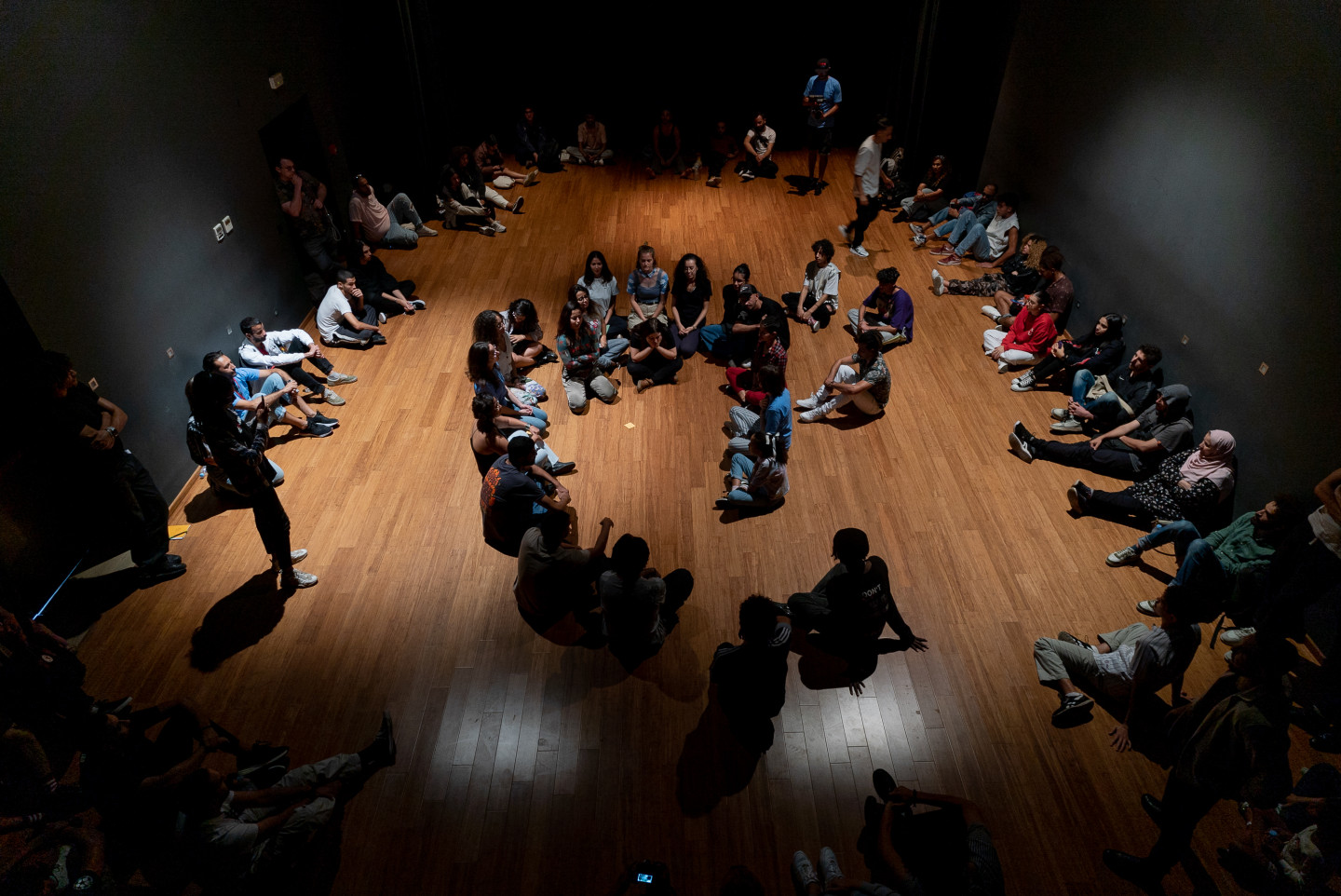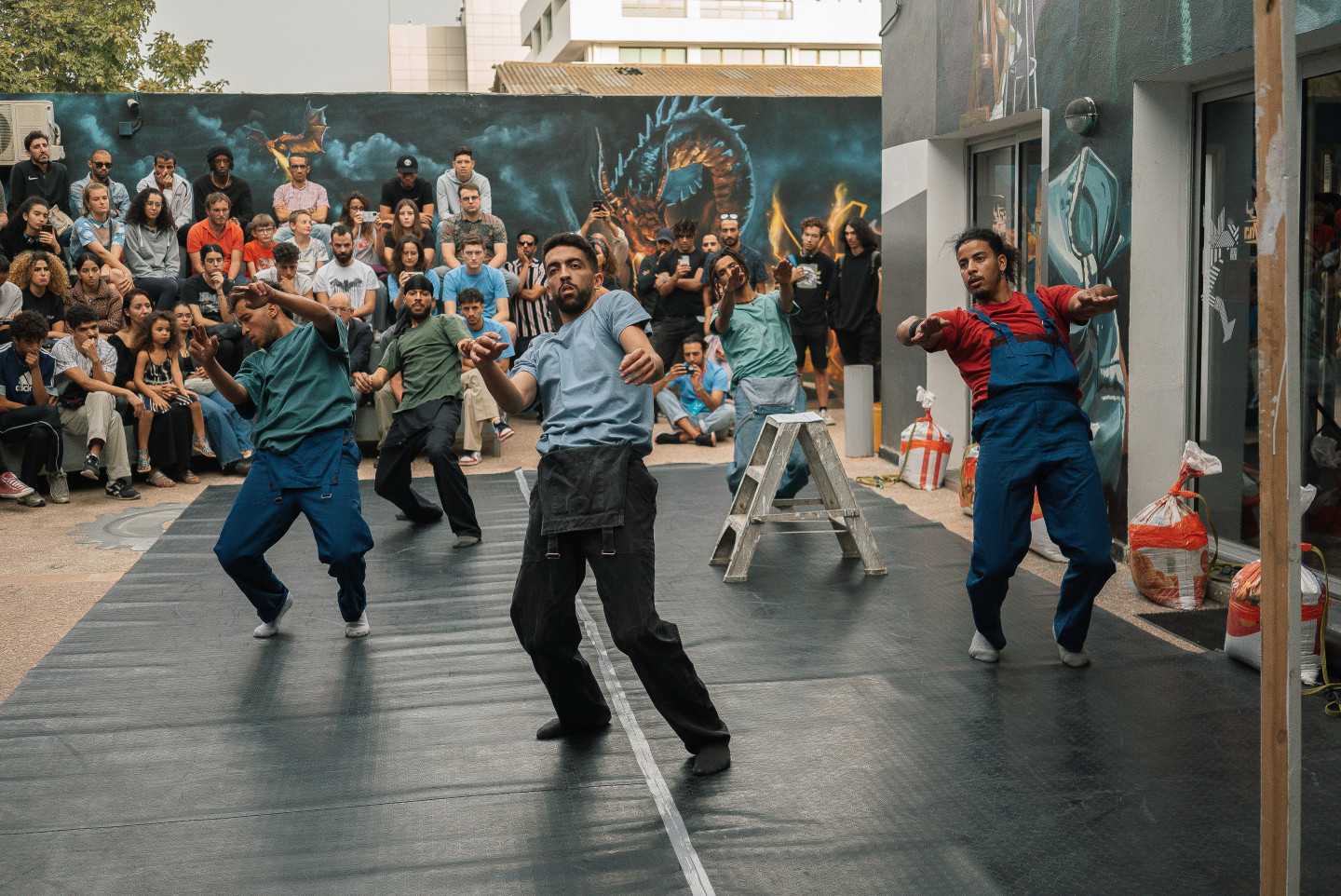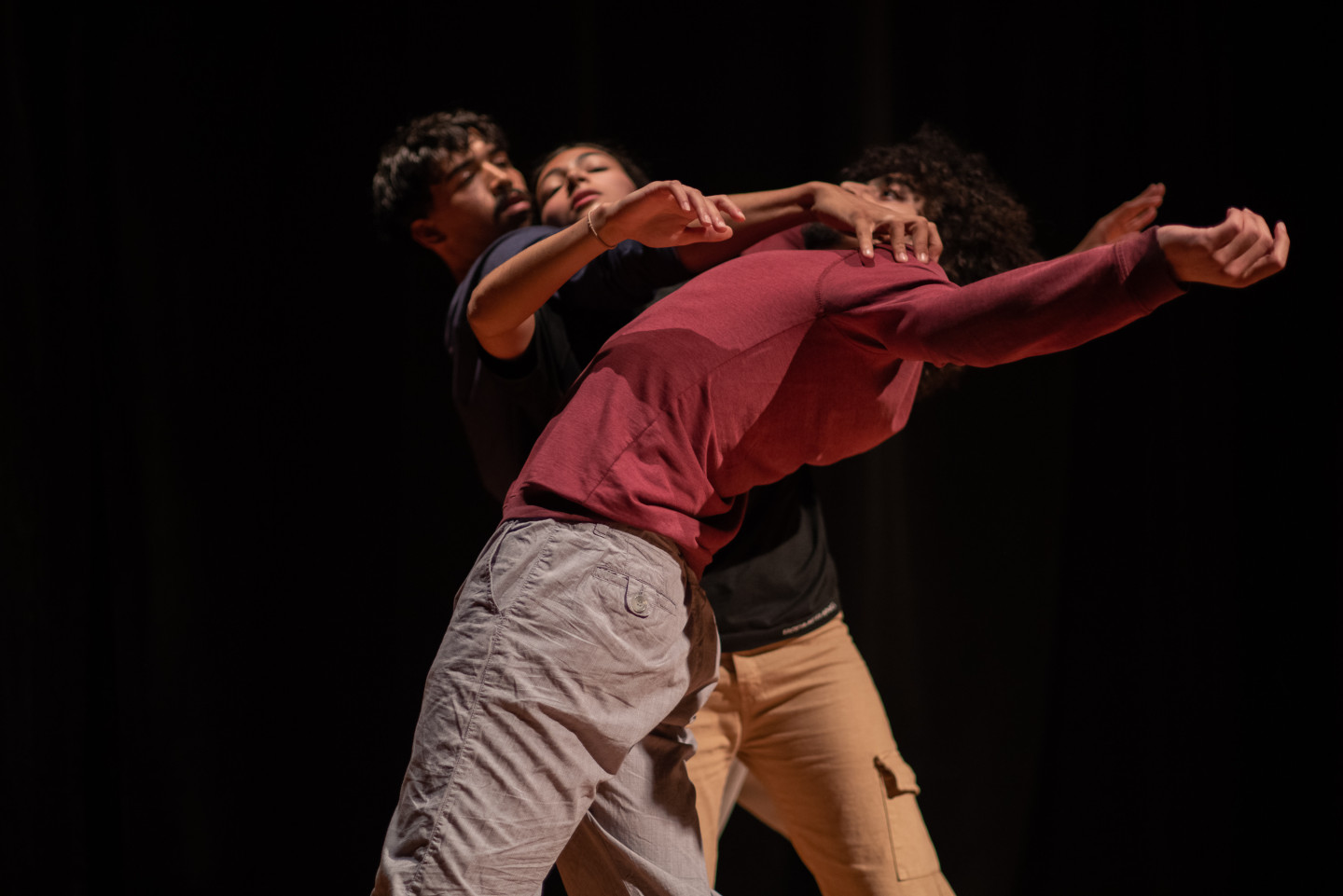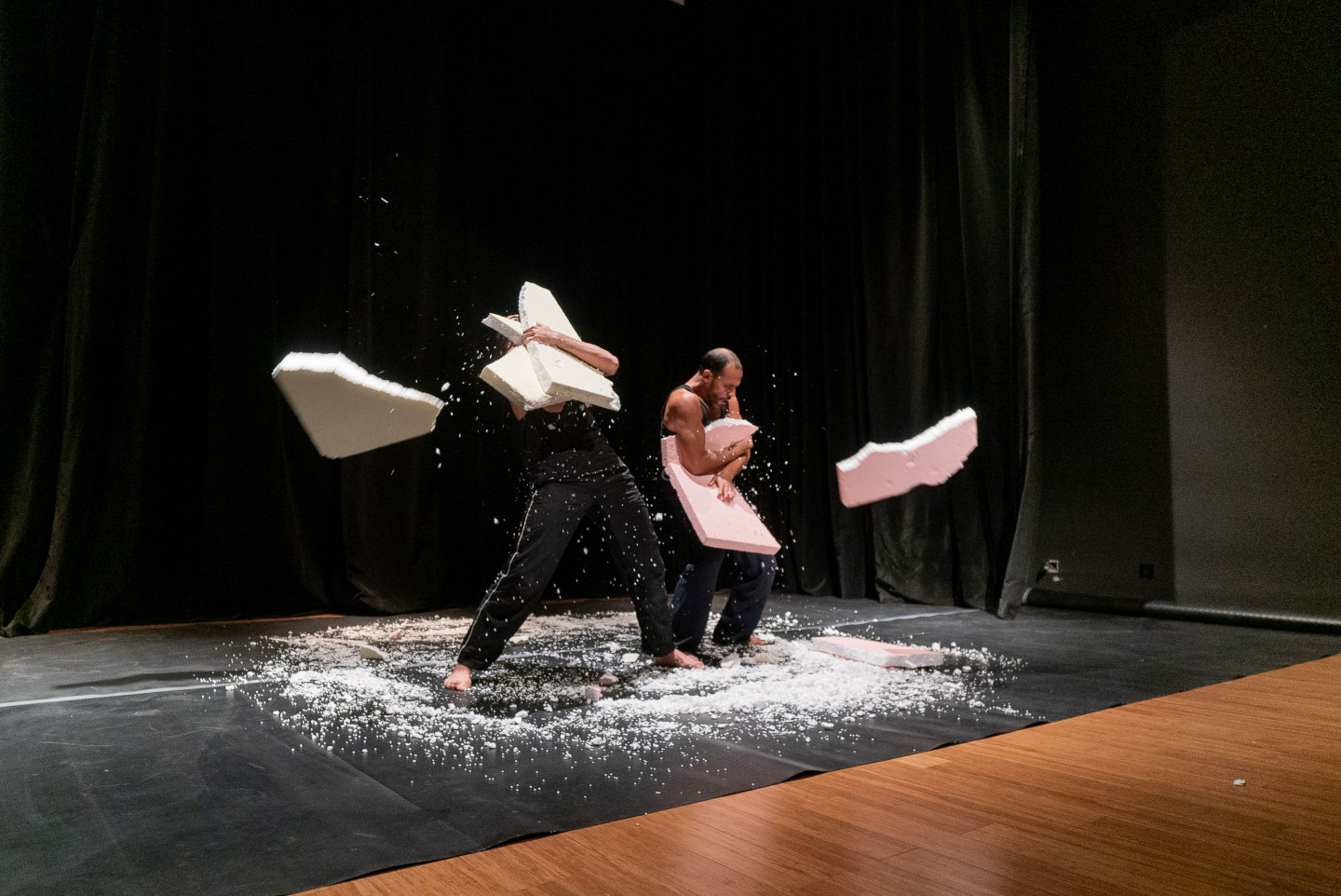FUSION 2022 built on the pilotproject FUSION to respond to the needs of dancers in Morocco to professionalise & become entrepreneurs. Enableing dancers to become entrepreneurs ensures sustainability of the dance scene, boosts social equality (in particular gender equality) and resilience. An Alumni network, a cooperation with local festivals & a presentation platform initiated by FUSION set out to increase dancers income and visibility.
Outcomes
Dance workshops:
13 dance workshops with 209 participants in the frame of the training programm were held in the cities Rabat, Salé, Tangier, Tetouan and Marrakech. Participants reached from beginners to semi- and professional dancers, aged between 18 and 29, around 30% women and 70% men; coming from mainly disadvantaged and low- income families. One workshop was for women only, aged from 28 to 45years old.
Project launch and kick-off workshop
The project launch and kick-off workshop with Fusion Alumni and project partners took place in February 2022, that welcomed 35 guests and 3 cultural specialists that mentored the Alumni to prepare and create their own projects from project idea, budgeting, performance implementation until presentation.
Mentoring programme
7 projects were created in the mentoring programm, 3 with an pedagogical approach and 4 as artistic creation; from 10 women aged 18 – 36years and 23 men aged 21 – 35 years. Each group had a 10 – 14 days residency in Rabat, Salé or Casablanca at the Goethe-Institut, L’École du Cirque Shems’y, l’Uzine, the Institut Francais Rabat or the Institut Francais Casablanca. 3 projects offered a work-in-progress showing for the public, 3 projects offered a workshop within their residency.
Final event
A final event on Occtober 2022 welcomed a big public in the cultural space L’Uzine, where the 7 projects where presented in form of performance, workshop, film screening, lecture. One project could pesent their performance in the dance festival “Les Rencontres Chorégraphiques de Casablanca”. The project reports the achieved goals: dancers were enabled to become entrepreneurs, own projects were developed to ensure sustainability of the dance scene, social and gender equality as well as resilience was boosted through self-empowerment. The alumni network is functioning, cooperation with local festival suceeded, and the presentation platform initiated by FUSION did increase dancers income and visibility.
Overall the project created the possibility to envision, create and implement a first own artistic or pedagogic project and enabled the candidates to continue working with the produced work, and work professionally as cultural entrepreneur (SDG 5 and 8). Dancers from disadvantaged cities participated in workshops to enhance their artistic level and exchange with (expert) dancers and mentors (SDG 5 and 10). Participants could join as workshop teachers, thus enabling them to earn income, create structure and network for becoming cultural entrepreneurs (SDG 5 and 10).
The project created opportunities for exchange, dialogue and transfer of skills such as the exchange between the FUSION participants in and outside of the project in theoretical and practical workshops, dance festival and final event; the FUSION Alumni group that keeps contact between dancers and with partners, inclusion of FUSION participants in other cultural projects of project partners and EUNIC members in 2022; planned projects for the future for working together between EUNIC members, partners and FUSION participants (e.g. continuation of support for the 7 projects, continuation of dance workshops in other cities); and engaging dancers to perform in opening ceremonies and events. The skill transfer was visible through the dancers' role of becoming dance teachers and entrepreneurs in and outside of the dance community and functioning as multipliers.
Challenges and Learnings
The pre-planning of project started off well and mutually enriching between the 5 institutions and local partners. Due to unforeseen lack of staff, Institut Français Casablanca could not contribute to the project from February to September 22. The 3 remaining institutions Goethe-Institut, Délégation Générale Wallonie-Bruxelles and Dutch Embassy carried the project throughout the year. The coordination between these 3 institutions proved to be fruitful and mutually enriching, with weekly meetings, great teamwork and passion for the project.
Workload was very high due to staff shortage, resulting in a delay of the training programme, which required for adjustments to be made and the training programme was mainly carried out in second half of the year. Engaging mainly local mentors worked out well as six dancers from Fusion Alumni taught a total of 8 from the 13 workshops.
Still, due to the ending of Corona measurements in March 22, the project could follow its schedule regarding the mentoring programme, that went very well as working with the Fusion 21 Alumni proved to be very fruitful and responsive. Each group was passionate about their project and future visions. Cultural mentors were engaged to follow-up the project and reduce the workload for EUNIC Cluster members. To respond to the high interest of local dance scene in participating in FUSION, new artists could participate in the artistic and pedagogic “mentoring program” projects of the Fusion Alumni, welcoming more than 15 new dancers, videographers and project managers. These new persons profited from this year’s project, functioning as multipliers. The project resulted in a growth of the FUSION network and more FUSION Alumni. Networking between participants, partners and EUNIC Cluster was important factor for the success of the project. Local partners proved to be reliable and responsible, contributed with expertise, organisation, passion and visibility to the project. A strong and passionate network of European and local institutions as well as artists is the great outcome of FUSION 2022.
Feedback
The project proved to be highly appreciated not only by the beneficiaries (urban and contemporary dancers across Morocco), as well as by the local peer group and larger dance community. Its offers addressed the local needs and untacked potentials of the young dance scene in Morocco, it offered opportunities to proactively create own projects and thus take action, professionalise and make first steps/continue a professional career in the dance field. DF22 boosted a sense of entrepreneurship and contributed to building bridged between European institutions and Moroccan dancers. It invited a big diverse audience and the believe of the European and partner institutions that dance is an important and uprising art form in Morocco.
FUSION enabled us to think how we can include Moroccan culture into our art practice. In our project BLASSNA, we worked with the reality/concept of sitting in a café for hours and doing nothing, sipping only slowly on a coffee or tea, which is the case for many unemployed men in Morocco.
Hamza, 24, urban dancer from Rabat/Khouribga, studying now dance in France
This project gave me and my group “We the Lions” the opportunity to research and create our project “We Teach”, a pedagogic concept. Without Fusion, we would not have been able to work for this project that will now allow us to offer workshops for beginners and diverse target groups all over Morocco.
Yassir, 22, urban dancer from Casablanca




